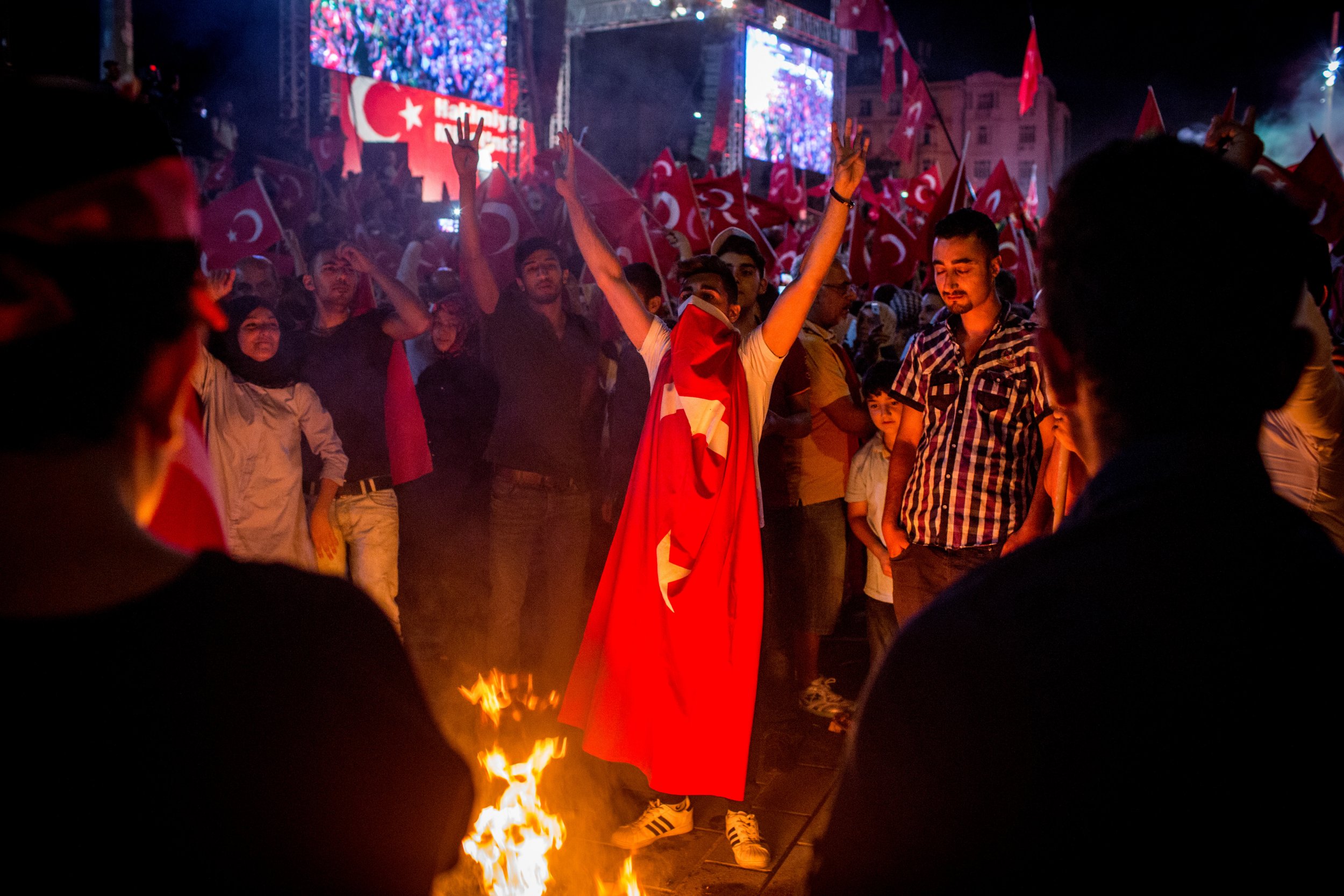
Updated | Turkey's Prime Minister Numan Kurtulmus said on Thursday that the country would suspend the European Convention on Human Rights, further to President Recep Tayyip Erdogan's announcement of a three-month state of emergency following last week's failed coup attempt.
It comes after he accused Muslim cleric Fethullah Gulen, exiled in the U.S., of orchestrating the coup that left 246 people dead and more than 1,000 wounded. In response to the attempted military takeover, the Turkish government has fired or suspended 50,000 people from their posts across state institutions, arrested 10,000 people, including judges, teachers and journalists, and closed hundreds of schools.
But what does the state of emergency mean for the country and its democracy as it continues to be beset by political instability and a security threat from a range of militant groups?
In a televised national address, Erdogan pledged to remove "viruses" from the military, saying that the country had to take whatever necessary means to prevent a coup, while insisting that the country's democracy would not be harmed. "It is very similar to a cancer," he said. "It is like a metastasis that is going on in the body that is Turkey. And we will clean it out."
This state of emergency would give Erdogan's government additional powers that would allow Erdogan to continue his crackdown on those the government says are linked to the coup attempt.
"We will remain inside a democratic parliamentary system, we will never step back from it," he told Al Jazeera. "However, whatever is necessary for the nation's peace and stability will be done. I don't think we have come to the end of it yet."
But commentators have expressed concern that the announcement of a state of emergency will lead to a greater authoritarian rule for Erdogan in Turkey, giving him greater power to impose law and silence critics.
David Kenner, Middle East editor of Foreign Policy magazine, tweeted the article of the Turkish constitution that applies to the state of emergency, highlighting a section of the text that reads: "During the state of emergency, the Council of Ministers, meeting under the chairpersonship of the president of the Republic, may issue decrees having the force of law on matters necessitated by the state of emergency."
It will therefore remove the need for both Erdogan and the country's cabinet to receive parliamentary approval for new laws, while being able to limit rights and freedoms of Turkish citizens as they see fit in the next three months.
Social media users responded in kind, calling the state of emergency a "presidential system for three months" and a "complete and thorough power grab." Erdogan has made it his aim to convert Turkey into a country that operates under a presidential system, similar to that of France and Russia.
German Foreign Minister Frank-Walter Steinmeier also expressed concern and called on the Turkish government to only implement the state of emergency for as long as it was "absolutely necessary" and then "immediately end it."
Following the removal of then-Prime Minister Ahmet Davutoglu in May and appointment of Erdogan's loyal ally Binali Yildrim, officials said that a cabinet of loyalists would be installed that would see a "de-facto presidential system" come into place without any changes to the country's constitution required.
The Turkish leader's desire for such executive power was highlighted after parliamentary elections in June 2015, when the pro-Kurdish HDP party passed the 10 percent threshold to enter the parliament and deny Erdogan's AKP party the majority it would need to implement legislation without significant challenge.
The government called a snap election in November 2015 after months of instability and clashes between government forces and Kurdish militants. The AKP secured the majority that Erdogan had sought.
After the election cycle, many believe that this failed coup and the ensuing state of emergency provide Erdogan with further grounds for tightening his grip on power in the country, regardless of his words to the contrary.
This article has been updated to include the announcement of the suspension of the European Convention on Human Rights.
Uncommon Knowledge
Newsweek is committed to challenging conventional wisdom and finding connections in the search for common ground.
Newsweek is committed to challenging conventional wisdom and finding connections in the search for common ground.
About the writer
Jack is International Security and Terrorism Correspondent for Newsweek.
Email: j.moore@newsweek.com
Encrypted email: jfxm@protonmail.com
Available on Whatsapp, Signal, Wickr, Telegram, Viber.
Twitter: @JFXM
Instagram: Read more
To read how Newsweek uses AI as a newsroom tool, Click here.








